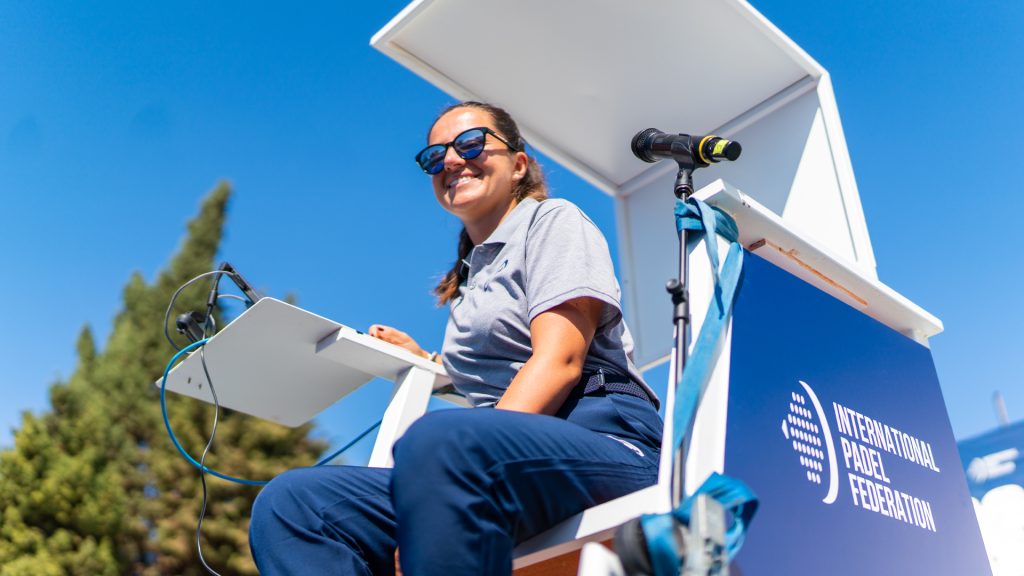How to become a padel referee – Federica Simongini: “Study a lot. The players? How nice the fairplay between them and with us”
October 6, 2023
Curiosity, study and a lot of passion. Three requirements that cannot be lacking for someone like Federica Simongini who is a padel referee. Sardinian, with a long international experience at world level, Federica is one of the match officials of FIP Platinum Sardegna, in Cagliari, her hometown. It was from here that her experience as a “padel” match official started in 2020, when the city gave birth to the FIP Star, a tournament that later became decisive for the growth of the sport in Italy. Already a tennis referee for 7 years – now it’s been 10 – Federica took the new path just a stone’s throw from home before traveling the world. “Until then I had never refereed a padel match, but I was here in Cagliari, they called me for the finals, and I decided to accept this challenge”.
From a theoretical point of view, she explains, padel requires hard study, just as with tennis: “At one time the paths were separate. Today, with the growing popularity of the sport, you go through a course at the end of which you acquire the qualification as both a tennis and padel referee”. After that, it becomes a matter of practice and apprenticeship: “The more matches you referee the better, you need a lot of willingness, and it is important to always be curious, show passion, ask questions and learn from those who have more experience. And then watch as many matches as possible, not only on the field but also on video. It is a key aspect to learn how to be an eye on the most complicated situations to assess”.
Studying, hours and hours of video between play button and rewind button, to train the eye and reaction time on the most difficult plays: “The umpire is quite far from the court, and some balls, complicit with the walls, can be a little difficult to follow. That’s why it’s important to see the plays, and that’s how I learned to tell if a ball is good or out and for what reason. Practice helps you catch the bounces quickly, the way the ball comes out of the panels”. Simongini reveals what are the most complex and delicate moments in assessing a game situation: “You need special attention when players leave the court, check that they don’t touch the post or the net, for example. Or when they make an x3, the shot that sends the ball out of the cage: even in that case it is necessary to check that everything is done according to the rules, without touching anything with the racket or the foot. Here, too, experience makes the eye”.
Technical aspects aside, it is the relationship under the banner of maximum fairplay that Simongini particularly emphasizes: “There is a lot of respect on both sides, and I see that the same is true in their relationship. In general there is a lot of honesty and transparency, even in disputed balls, and this is transmitted to the referee. Of course there are moments of discussion, a decision can change the game, but it is something that stays on the field. It has never happened to me that, after one of these moments, the player in question would return to the episode in subsequent matches”. And to those who would like to become referees, what advice would you give? “As I said, you need a lot of passion, especially when you’re working your way up through the ranks, going around, watching tournaments, getting caught up in the sport, which in any case has the ability to attract even those who don’t play it. Then slowly aim high and why not, to big stages: for example, I happened to play international tournaments but never at the Foro Italico and I hope one day to be there too”.